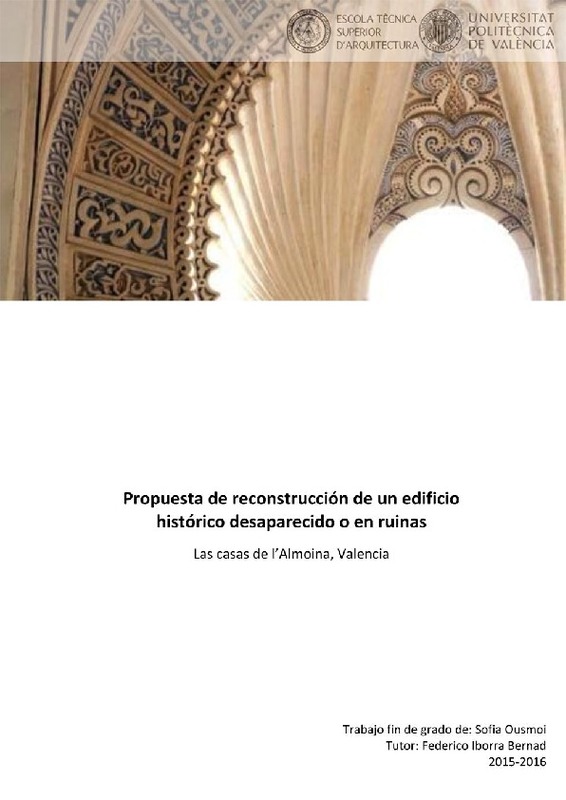|
Resumen:
|
[EN] The hispano-muslim art is the heritage and the descendant of other artistic traditions giving it its richness and features. The presence of Islam in the Iberian Peninsula for nearly eight centuries, with its extraordinary ...[+]
[EN] The hispano-muslim art is the heritage and the descendant of other artistic traditions giving it its richness and features. The presence of Islam in the Iberian Peninsula for nearly eight centuries, with its extraordinary cultural background and splendid artistic creations determines the personality of the medieval Hispanic, and coined peculiarities that are part of Spanish patrimony. The different works preserved in the peninsula are the best testimony of that era.
The main purpose of this work is, firstly, to skim chronologically the major Andalusian architecture monuments and make a link between art, the social situation and the political situation of this era. Secondly, to analyze the evolution of the Andalousian house and the domestic areas throughout the successive historical stages through which the Iberian Peninsula has been through, from the Islamic conquest at the beginning of the 8th century to the expulsion of the Morisco at the beginning of 17th century. Finally, we will analyze the archaeological excavations in the area of "The Place of Almoina" in Valencia, of a housing assembly of the XII-XIII century and try to make a reconstruction of one of them, applying knowledge of Andalusian history and based on excavations in Siyasa and Murcia.
[-]
[ES] El arte hispanomusulmán es heredero y receptor de otras tradiciones artísticas las cuales le aportan riqueza y caracterización propia. La presencia del Islam en la península Ibérica durante casi ocho siglos, con su ...[+]
[ES] El arte hispanomusulmán es heredero y receptor de otras tradiciones artísticas las cuales le aportan riqueza y caracterización propia. La presencia del Islam en la península Ibérica durante casi ocho siglos, con su extraordinario bagaje cultural y sus espléndidas creaciones artísticas, determinó la personalidad de lo hispánico medieval, y acuñó peculiaridades que forman parte del patrimonio español. Las diferentes obras conservadas en la península son el mayor testimonio tangible de aquellos tiempos.
El objetivo fundamental de este trabajo es, por una parte, recorrer la arquitectura de Al-Ándalus atendiendo a sus principales monumentos de forma cronológica y relacionando su arte con su situación política y social y, por otra, analizar la evolución de la casa andalusí y sus espacios domésticos a lo largo de las sucesivas etapas históricas por las que pasó la Península Ibérica, desde la conquista islámica a comienzos del siglo VIII hasta la expulsión de los moriscos en los inicios del siglo XVII.
Finalmente, se analizaran las excavaciones arqueológicas de un conjunto de viviendas del siglo XII-XIII, realizadas en el área de la Plaza de l'Almoina de Valencia y, se intentará realizar una reconstrucción de una de ellas, aplicando el conocimiento de la historia andalusí y basándose sobre excavaciones realizadas tanto en Siyasa como en Murcia.
[-]
|







